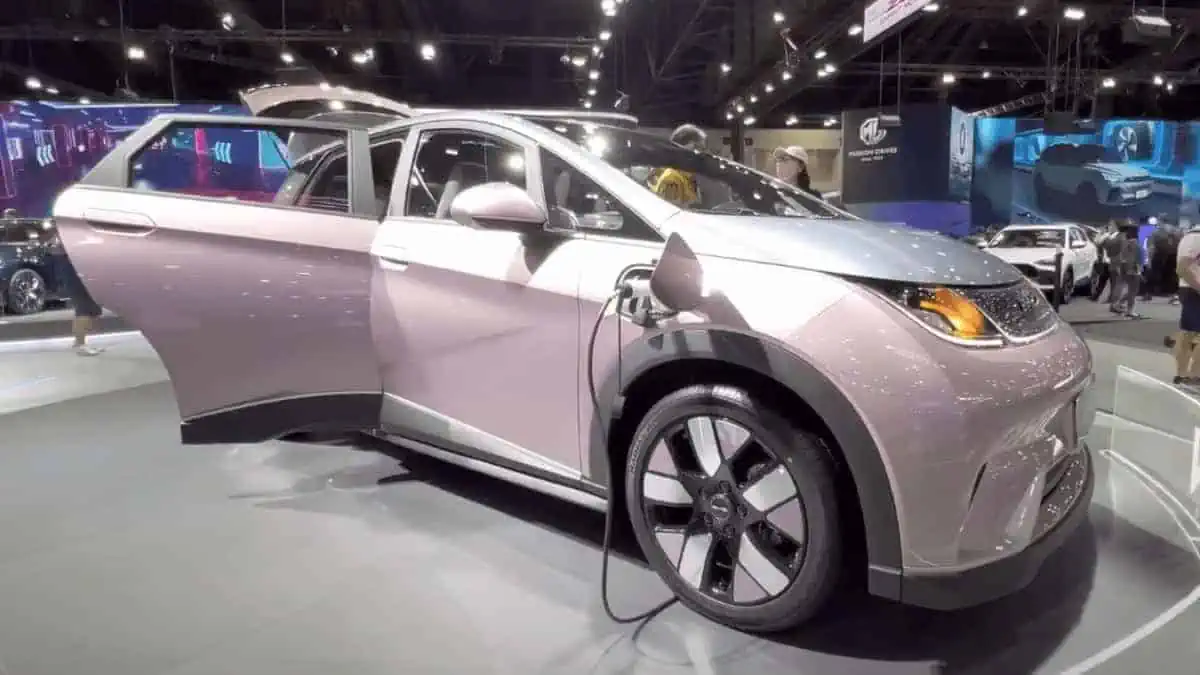Chinese electric automaker BYD has just confirmed plans to establish a new production facility in Europe, which will mark its first dedicated electric car factory globally.
“The new production facility will incorporate the most advanced global technology and highly automated production processes to create a leading global new energy passenger vehicle manufacturing facility. The construction of this production center is expected to have a positive impact on the local economy by promoting technological exchange and innovation between China and Hungary. BYD will also utilize its expertise in integrated vertical supply chains to help create a green ‘ecosystem’ locally.”
BYD (via InsideEVs)
Announcement
BYD announced that it will develop its first-ever electric car factory in Hungary, InsideEVs reports. Notably, the announcement aligns with the previous rumors that initially revealed the NEV giant’s potential investment in a new European production plant.
According to Foreign Minister Péter Szijjártó’s statement on Friday, BYD will erect the factory near the city of Szeged.
The factory’s development is expected to create thousands of jobs in the region, ABC News asserted. The Foreign Minister further noted that the new factory “will be one of the largest investments in Hungarian economic history.”
Why Hungary?
The Hungarian government pledges to offer financial support for BYD’s factory development project, with plans to reveal specific figures at a later date.
Notably, Hungrary has been aiming to advance as the global hub of li-ion battery production amid the worldwide’s push for more sustainable mobility. It already attracted industry giants like Samsung and CATL to invest in the country’s battery manufacturing industry to support existing automakers’ recent strategies to electrify their portfolio, including Audi, BMW, and Mercedes-Benz.
In addition, BYD already operates an electric bus factory in Komarom. However, the report noted that the Szeged factory is set to become the automaker’s first major consumer electric car factory in the European region.
Szeged Mayor Laszlo Botka asserted that the “geographical location and logistical development of the city significantly influenced BYD’s decision to choose Hungary. He further disclosed that BYD already started preparing for the development of the 300-hectare (740-acre) site.
In return, Foreign Minister Szijjártó stated that the project will significantly aid the country’s efforts to solidify its long-term economic growth foundations and its position in the electric vehicle industry. Interestingly, he also revealed that the two parties had undergone 224 rounds of negotiations before proceeding with the proposed factory.
“This investment underlines the fact that Hungary is a leader in the technological revolution.”
Foreign Minister Szijjártó
BYD’s European footprint
BYD has already launched five different battery-powered electric vehicles in the European market, including the Han, Tang, Atto 3, Seal, and Dolphin.
It currently operates 230 retail stores throughout 19 countries in the region. Excitingly, BYD further plans to expand its electric vehicle portfolio next year with the launch of three new EV models.
According to the report, the Chinese NEV giant is striving to boost its exports from China. However, Europe’s recent concerns over the dominance of China-made EVs in the region have undoubtedly prompted BYD to supplement its exports with local production.
BYD has yet to directly state that the new Hungrary factory will solely produce battery-powered electric cars, eliminating the potential inclusion of other NEVs like plug-in hybrids and hybrids. However, reports suggest that it will highly likely become an all-electric factory, considering Europe’s increased push to ditch internal combustion engine-powered vehicle production.






